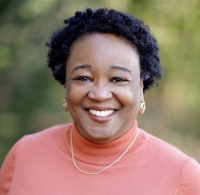Newsroom@BlackPRWire.com
877-BLACKPR
(Black PR Wire) Life is full of ups and downs, and you never know how your plans can be easily turned around. It’s a given that racial trauma causes pain, strain and distress, but it is often suppressed.
Lisa Collins, Ed.D is an educational researcher who planned to study trauma, but instead explored her lived experiences. She became her own research subject after her medical doctor demanded she take time off from work. The outcome? Dr. Collins examined her racial trauma and found a solution and healing for herself and others. She recently reflected on healing from racial trauma at a TEDx Carioba Studio event, an independently organized TED event, released March 2, 2022. The YouTube link to see the talk can be found here: https://www.youtube.com/watch?v=9UlLqmLRGRw.
Dr. Collins has an interesting backstory and comes from a loving family. Fostering healing was ingrained in her throughout her life. Her grandfather was a sharecropper in rural Arkansas and worked until he could have enough money to have his own land.
“I believe that my grandfather, mother and my ancestors racially fought for me and they did. And now I’m fighting for the racial well-being of my children, and their healing,” she recalls.
The request to take time off from work was a wake-up call for Dr. Collins. In the middle of researching trauma for her doctorate, she started looking at herself and reflecting on her own life. After her primary care doctor suggested taking time away from work, Dr. Collins began her journey through racial healing. When she heard a small voice say, “You’re the subject of your research,” she listened and an autoethnography was born.
Dr. Lisa Collins’s research on Healing from Racial Trauma: A Consciousness Journey in Autoethnography, examines the ever-going frustrations of people of color that generate racial trauma and health implications, silenced by ignorance and avoidance. During her TEDx talk, she describes instances of microaggression in predominantly white institutions as the catapult for her research on racial trauma, and her experiences as the basis of that research.
Dr. Collins wrote about her lived experiences in three organizations. She gathered data, pictures, poems, written reflections, experiences, and discerned each one. She coded them. Coding and qualitative research are how she defined and understood each artifact. She looked at each artifact and highlighted parts or all of it.
“So, my research consists of 61 artifacts and 178 highlighted quotes,” she explained. “Six themes emerged. Organizational trauma, racial trauma, systemic oppression, settler colonialism, white supremacy, and racial healing. The most prevalent experience was racial trauma. The one with the least amount was racial healing. Racial trauma happened five times more than racial healing.”
Racial trauma, according to Dr. Collins, is unlike other forms of trauma. She believes that most black people experience racial trauma regularly. She said that many of us have learned how to suppress it and because of that, we are confronted with unforeseen health complications.
As a black educator, racial trauma cumulated the inevitable stress, anger and anxiety that she felt throughout her career. The lack of racial trauma awareness for people of color shut the door to healing and confronting generational trauma that exists in BIPOC communities.
Dr. Collins’ research yielded a call to action for greater community well-being and racial healing groups for BIPOC and NON-BIPOC people. Her research and her healing led to a coaching model that will help people of color to be able to recognize, learn, heal and pass it on to other people. Using her research, Dr. Collins aims to coach people of color on how to live in white spaces without losing their sense of self and identity. She currently facilitates racial healing spaces at various times during the year. With a resulting goal to help others build community and heal from the past, she is well on her way to creating a better future for us all.
About Lisa Collins
Lisa Collins is an educational professional with over 25 years of experience. She holds degrees in psychology and education and works as an assistant professor at Lewis and Clark College and the Director of her small business, Education Through Engagement, LLC. As a learning and development professional, she supports talent management and business partners to solve workforce challenges. She brings a gender and equity lens to her working environments and her communities as a person of color. She uses Conscious Freedom and Interpersonal Neurobiology frameworks to enhance her consulting. Dr. Collins brings multiple perspectives, creates community, and studies racial healing to her work. She serves on the Oregon Assembly of Black Affairs, the advisory board for Strategies of Trauma Awareness and Resilience with Eastern Mennonite University, and On The Inside, a creative outlet and healing for incarcerated women.
Creatively, Dr. Collins is a playwright and filmmaker with works produced in New York (Manhattan Repertory Theater) and Portland (Hipbone, Portland Center Stage, and the Armory). Her short film, Be Careful What You Ask For has won selection in the Fertile Ground New Work Virtual Festival 2021, Manhattan Repertory Short Stories Film Festival 2021, Pacific Northwest Multicultural Film Festival 2021, and Portland Film Festival 2021. She is also currently the host of her own Podcast, Love and Light with Dr. Lisa. The show is designed to identify and find the need for a life of peaceful love-filled existence and engagement with tough topics by leaning in and incorporating healing. The Podcast is featured on the #1 positive talk network, streaming live on www.transformationtalkradio.com.
For more information on Dr. Lisa Collins and her research, please call 971-238-9608 or visit www.educationthroughengagement.com.
# # #

